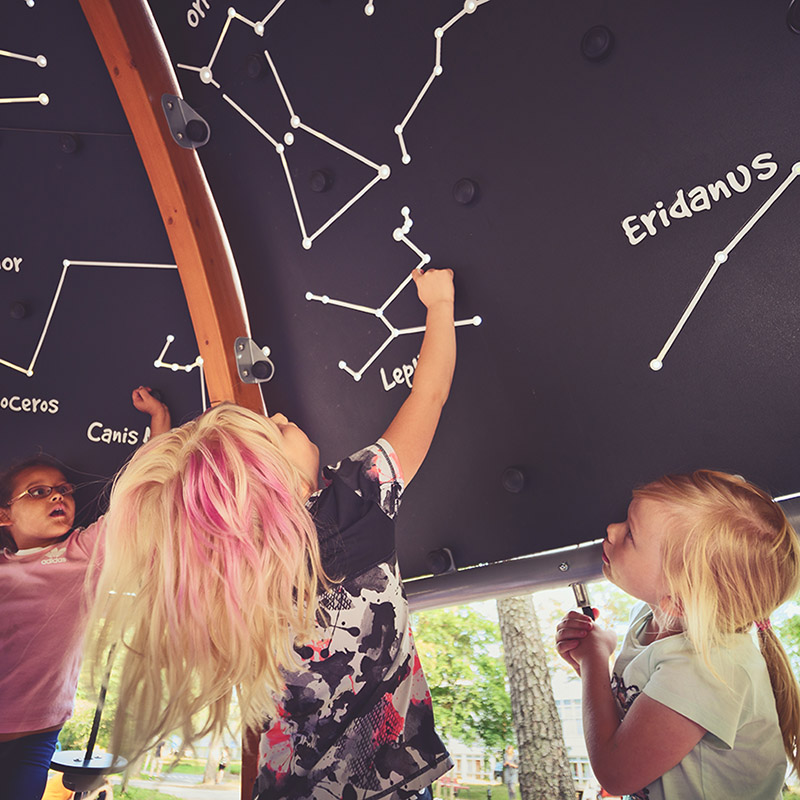Playing and learning go hand in hand
Playing promotes learning by stimulating the entire body and leaving a memory of the learning experience in the nervous system. The physical activity involved in playing boosts memory and teaches creative thinking. Studies show that role-playing is extremely important for learning. Playing gives children an opportunity to put themselves in different positions and take turns seeing things from the perspectives of both leaders and followers.
“Playing is a way for children to process and apply what they have learnt previously. Playing is about using your imagination and learning to understand patterns and causality. Playing is an arena for creative thinking, for stepping outside of routines and coming up with new solutions”, says learning researcher and Associate Professor and Docent Signe Siklander from the University of Oulu, Finland. One good example of creative thinking is children’s ability to make their surroundings suit whatever game they want to play, for example on a playground. Playing also teaches children the laws of physics and basic life skills.

"Children should ideally be consulted on playground designs."
- Signe Siklander 2019
Playing is a way to learn about society
“Playing helps children to develop emotionally by teaching them, for example, to identify different emotions and control them. Strategic thinking and problem-solving skills also benefit from having to think up ways to move the game forward by reflecting on each situation and deciding whether more toys, for example, are needed”, Siklander explains.
Studies show that role-playing is extremely important for learning. Playing gives children an opportunity to put themselves in different positions and take turns seeing things from the perspectives of both leaders and followers.
“Even the planning of the scenario and roles is a learning experience, as it requires children to use their previous experience, understanding and knowledge of the subject. Playing itself is an opportunity to accumulate new knowledge through others”, Siklander says.
Playing is an active form of learning
The physical aspects of playing challenge both body and mind and give children feedback on their own endurance and ability. Playing gives children an opportunity to learn new things.
“Children see playing as an active form of entertainment. Watching television, for example, is not the same as playing. Playing gives children stimuli that excite them and keep them motivated.” Brain research shows that human beings function holistically and that physical activity also stimulates the mind. The importance of movement therefore cannot be emphasised enough and should be incorporated into the learning process.
“We all know how a little bit of exercise can suddenly help you to come up with a solution to a problem that has been on your mind for a long time. It takes time for the brain to process new information, which is why it is important to keep your whole body active either during or soon after a learning scenario”, Siklander says.

The physical aspects of playing challenge both body and mind
A dream playground is one that has something for everyone
In the world of playgrounds, versatility is king. An optimal playground design provides stimuli for different activities, different kinds of users and different ways of thinking. Technology enables building a new generation of playgrounds with completely new dimensions. Digital components can be designed to give children feedback on their progress or tips for taking their game to the next level. Siklander believes that a great playground design also requires input from the true experts: children. “Children should ideally be consulted on playground designs. Giving children a say makes them more likely to ultimately use the playground, and the design process itself can also be a learning experience and an opportunity for children to use their imagination.”



